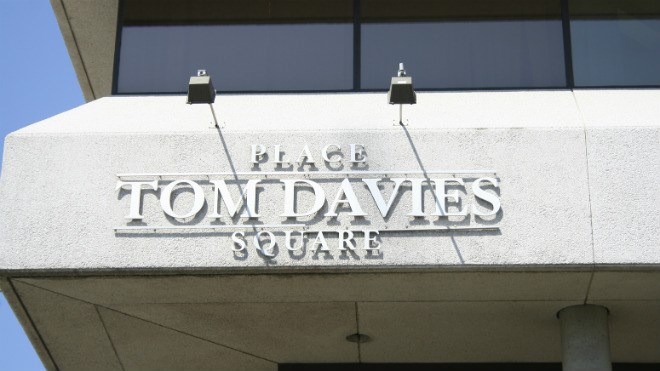Greater Sudbury is looking for middle ground when it comes to developing a bylaw to regulate ride-sharing companies such as Uber.
In a report going to city council Tuesday, staff is looking for approval to develop a vehicles-for-hire bylaw based on consultations held earlier this year with the taxi industry, representatives from Uber and the public.
“The recommendation in this report responds to the motion by council to consider regulations that find a middle ground which allows Uber to serve as broker for its drivers and allows the conventional taxi industry to function more like Uber,” the report says.
“This includes restricting ride share drivers to app-based activity while allowing conventional taxi’s the flexibility to use traditional dispatch, hail and taxi stand methods in addition to an app similar to the ride share sector.”
Taxi companies in Canada have been struggling with ways to respond to Uber, which provides much cheaper rides for customers than traditional cabs. That's largely because they are not bound by the licensing and fee regulations taxi companies must follow in order to operate in Canadian cities.
Unlike traditional cabs, customers use a smartphone app to arrange rides, and fares are variable depending on demand.
“To request a ride, the passenger enters their destination into the app, and is provided an estimate of the fare and information about available drivers in their area,” the report says.
“When the ride is accepted, the passenger is provided an estimated time of arrival and can monitor the vehicle’s approach on screen.
“There is no exchange of cash as financial transactions are done electronically, including payment by the passenger and payment to the driver.”
The bylaw being proposed for Sudbury would allow taxi companies to use similar technologies to connect with customers, and would impose fare and other standards on Uber. It would mirror efforts by other cities in Canada to regulate the rideshare industry.
Here's a sample of what other cities are doing:
- Both traditional taxi industry and ridesharing/auxiliary ride services must be licensed, usually via a brokerage;
- Drivers must be licensed by the municipality and require a police (usually vulnerable sector) check and driver’s abstract check;
- Vehicles must pass annual safety inspection and carry appropriate insurance;
- Only traditional taxi industry may use dispatch, street hail and taxi stands;
- Both traditional and ridesharing industries may use smartphone-based apps;
- Various identification methodologies for rideshares are emerging, some require plate, some require approved decal, some do not require specific identification;
- Common “drop rate” or “minimum rate” to enter all vehicles;
- Allow market to set ride rates for smartphone-based rides but maintain tariff for dispatched, street hails and taxi stand rides. In some instances tariff rate is used to establish a maximum ride cost.
In consulting with taxi companies and drivers in Sudbury, 91 per cent said they wanted Uber banned in the city. Failing that, they want driver screening, licensing, fares and insurance to be regulated in the same manner for both systems, the report says.
“Further, the majority of industry respondents are opposed to decreases in current taxi fares and, by a slim majority, favour the introduction of apps to pick up fares within the traditional taxi industry.”
One common theme from the taxi industry is that, unlike Uber, many taxi drivers work full time and depend on their income, as opposed to many rideshare drivers who work to earn extra income.
“The vast area of Sudbury and sparsely populated areas make it often a very difficult taxi situation as it presently exists,” one survey respondent told the city. “Uber will cripple the ability of existing drivers to support their families . . . many drivers have long served the city dutifully and should receive respect from council/local government.”
If councillors approves the request, city staff are aiming to have the proposed bylaw ready by summer.
